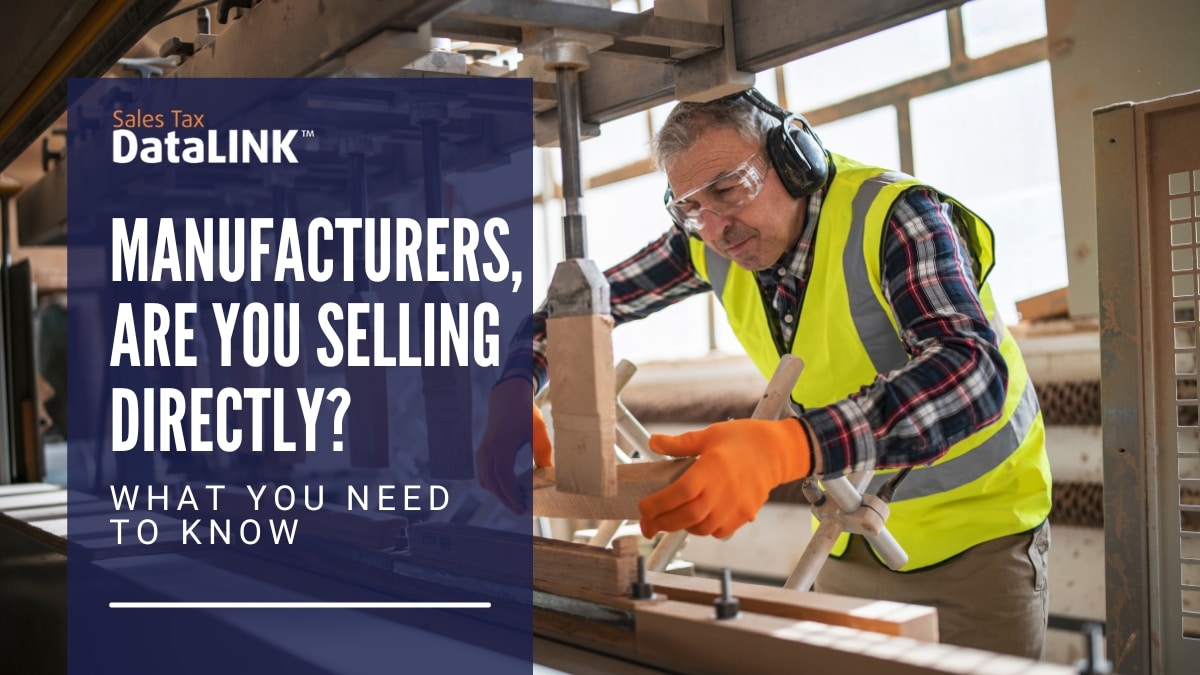It used to be fairly simple: manufacturers had factories and produced goods. They sent these to retailers, who sold them. Manufacturers didn’t need to collect sales tax from retailers; retailers collected the sales tax. The line has gotten blurred. At this point, many manufacturers sell products directly from their websites, operating as e-commerce merchants for their own brands. Even if you haven’t gone that far, however, you might be selling directly to the consumer.
What do you need to know?
Consider these examples: A cosmetics company sells customer favorites that are no longer in distribution. A tool maker sells manuals and spare parts for their tools, both online and at trade shows. A swing set manufacturer drop ships products to consumers who place orders through a school supply catalog. A bookseller sells books at conventions and conferences. A food producer sells cookbooks or special cooking tools on their website. A toy company sells directly to consumers who do not have access to an authorized dealer. While you don’t have an e-commerce site or a catalog, you will sell directly to consumers who call. You sell limited-edition products in a gift shop to individuals who come on tours of the factory.
It’s very possible that some of the companies described here don’t think of themselves as retailers, and don’t expect to have to collect sales tax. However, any of them might be required to do so. Since the requirements for collecting sales tax depend on a number of factors, anyone making a sale of the kind described above has to know at least the following things:
- The state where the sale was made, and whether the company has nexus there
- The state and municipality of the purchaser, if the sale was remote
- How the sale was made (i.e., online or in person)
- Any shipping or delivery costs, and whether the purchaser’s state taxes those costs
- Whether the item is taxable in the jurisdiction of the sale
If you’re making occasional casual sales, you might not know these things — and you might have a hard time figuring out when, where, and how you need to file sales taxes. Do yourself a favor and set up a simple, consistent system for sales before you make any.
Installing automatic systems for calculating, collecting, and filing sales taxes now will keep you from facing a painful audit in the future. Sales Tax DataLINK is used by manufacturers across the country. Call us now and let us show you how easily our tools will fit your needs.




